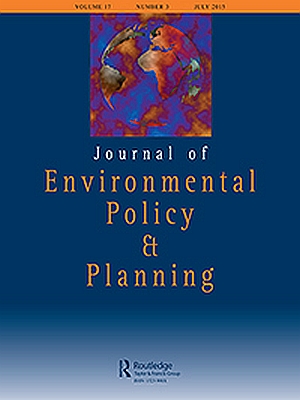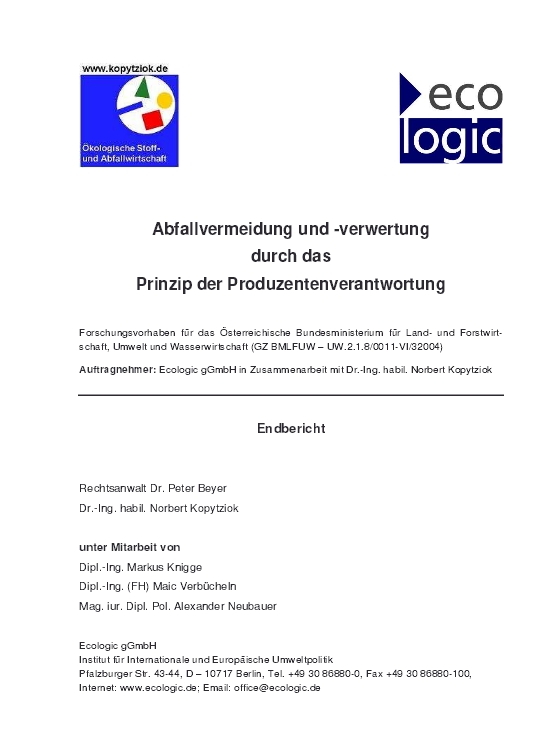Extended Producer Responsibility and Ecomodulation of Fees
Opportunity: Ecomodulation of Fees as a Way Forward for Waste Prevention
- Publication
- Citation
Sachdeva, Anurodh; Ariel Araujo and Martin Hirschnitz-Garbers 2021: Extended Producer Responsibility and Ecomodulation of Fees. Opportunity: Ecomodulation of Fees as a Way Forward for Waste Prevention. Berlin: Ecologic Institute.
In this analysis, Ecologic Institute focused on four product streams: plastic/packaging, waste electric and electronic equipment (WEEE), batteries and textiles to investigate the four cross-sectional aspects: modulation criteria, size of the fees, cost coverage and revenue use. The analysis suggests a systemic change in EPR and ecomodulation of fees is required which is more focused on waste prevention measures. The present modulation criteria are focused on improving end-of-life (EoL) management of products instead of promoting waste prevention measures such as reusability. The size of the fees does not reflect the real EoL costs and does not take into account the social and environmental costs. The EPR fee to product cost ratio for WEEE, batteries and textiles is too low to have a significant impact on producers’ product design decision. The current cost coverage is based on the concept of "necessary costs" which seeks to limit the level of the fee to what is necessary and minimize waste management costs. As the EPR schemes follow the principle of cost minimization, they are not able to internalize all external costs associated with (managing) the products' end-of-life. This leaves little space to use revenues generated to foster eco-design and waste prevention measures. To address the challenges, in this report, we suggest cross-cutting measures that can be taken to strengthen efforts towards waste prevention.
Background to EPR and Ecomodulation
Extended Producer Responsibility (EPR) is an environmental policy instrument, which places the responsibility for managing the product’s end-of-life on the producer. Producers pay EPR fees based on quantities of packaging or products (e.g. electric and electronic equipment and textiles) put onto market. Presently, in most European Member States EPR fees primarily cover downstream costs of waste management, in particular collection, transport, sorting and recycling/treatment. However, upstream processes to facilitate the transition to a circular economy, such as design for recyclability, reparability, reusability are seldom taken into account. Therefore, EPR fees do not (yet) differentiate between products and packaging, which are difficult to reuse, remanufacture, repair and recycle, and those, which are designed for reuse, remanufacturing, repair and recycling. Thus, there is no incentive for a producer to make upstream design changes to enable the circular economy.
In this context, ecomodulation of fees can play a crucial role in incentivising upstream design changes by reducing the fees for products or packaging designed for circular economy. Products or packaging with circular design (e.g., a minimum percentage of recycled content, high reparability index, reduction in weight of material, shift from low to easily recyclable material(s)) could benefit from reduced fees, while those with design barriers, which are also often exported to developing countries for end-of-life treatment, could incur higher fees. Thus, ecomodulation of fees can play a vital role in prioritizing design for as waste prevention, reusability, reparability and recyclability.

